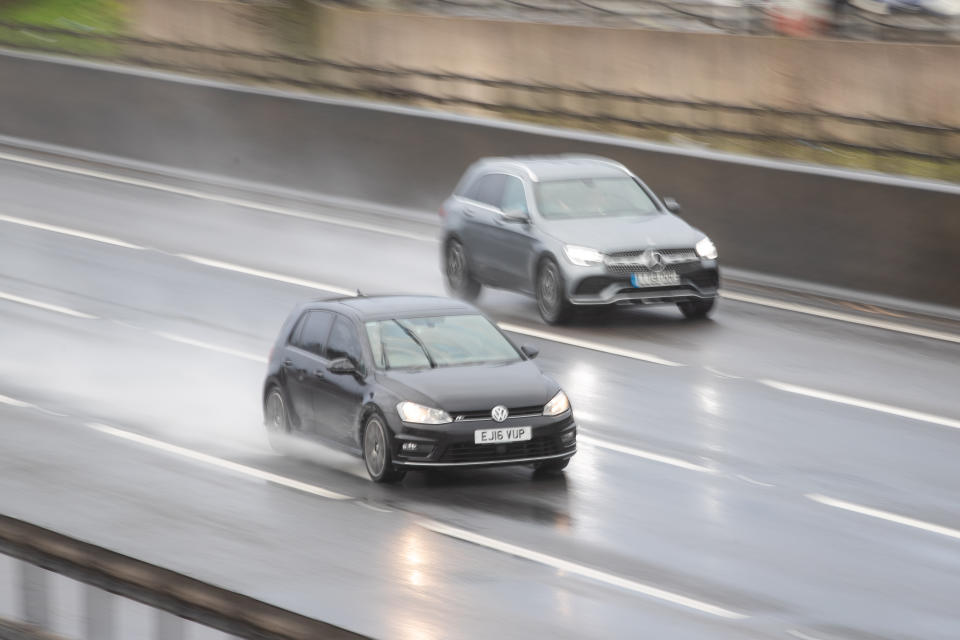UK Budget 2020: What it means for you and your finances

UK chancellor Rishi Sunak’s Budget will have far-reaching consequences for households and businesses across the UK.
The statement in the Commons on Wednesday set out the government’s tax and spending plans for 2020.
Sunak acknowledged there will be “temporary disruption” to the UK economy from the coronavirus outbreak, which has threatened already sluggish growth and spooked markets.
The finance minister, who only took up the role in February after his predecessor Sajid Javid’s shock exit, told MPs he would do “whatever it takes” to support the economy. He said his plans amounted to a £30bn stimulus.
Read more: What the UK interest rate cut means for your debt and savings
The Bank of England also announced an interest rate cut in response earlier on Wednesday, a move likely to significantly impact borrowers and savers.
Here is what some of the key measures mean for different groups in the UK, with details updated as they are announced by the chancellor:
Patients and NHS staff
Sunak said he knew how worried the public were about the impact of the coronavirus outbreak.
He promised the NHS “whatever extra resources” it needed, from recruiting returning staff to discovering a vaccine. A £5bn fund will be set aside for the NHS and other public services.
Employees
The chancellor outlined proposals to slash employees’ national insurance taxes in April.
The earnings threshold for the tax will rise to £9,500. Sunak said it would save 31 million people an average of more than £100.
Businesses, shoppers and drinkers
Sunak promised to refund up to £2bn for up to two million firms to cover statutory sick pay costs if staff are forced to take time off over the outbreak. The measures are targeted only at small and mid-sized firms with up to 250 staff.
A new loan scheme for firms facing disruption will also see them receive a government guarantee of up to 80% of loans.
Read more: UK budget to take investment ‘to 1950s levels’
The chancellor also confirmed retailers’ business rates will be scrapped altogether this year because of the outbreak, on top of a long-term 50% discount and wider review. Sunak said it meant nearly half of all business properties will not pay rates this year.
It will be welcomed by business leaders and shoppers keen to see support for their high streets. The chancellor and many shoppers will hope it stems the flow of store closures.
Other measures to help consumers include scrapping the so-called ‘tampon tax,’ the controversial 5% VAT charged on sanitary products. Spirit, beer, cider and wine duties will also be frozen.
Drivers

Drivers will breathe a sign of relief after the chancellor froze fuel duty for another year.
The government was considering a hike, which analysts say could have cost car and van drivers £2.4bn. But a revolt by backbench MPs prompted a sharp retreat.
Drivers, cyclists and other road users will also welcome a £2.5bn boost for road repairs, with Sunak vowing earlier this week to “eradicate the scourge of potholes” across the country.
£500m will also support the rollout of new “rapid charging hubs,” with the aim to ensure electric vehicle drivers are never more than 30 miles from one.
Self-isolating workers
“If people fall ill or can’t work we must support their finances,” he added.
Statutory sick pay will be extended to include people self-isolating even without symptoms. Access to benefits will also be made easier and fast-tracked for self-employed or low-paid workers who do not qualify.
“The government’s move to support the self-employed offers some much needed assurance to those that make up the expanding gig economy,” said John Ellmore, director of Know Your Money.
But workers have to earn £118 a week or more to qualify. The government resisted growing pressure to extend it to the low-paid.
Minimum wage earners
Sunak pledged to “end low pay” by hiking the legal minimum wage, which was rebranded as a living wage in 2016. April will see a 6.2% rise, worth around almost £1,000 to the average full-time worker, which Sunak called “the biggest cash increase ever.”
The government will also raise the living wage to two-thirds of median average earnings by 2024 “as long as economic conditions allow.” Current forecasts suggest it will reach £10.50 an hour.
Entrepreneurs
Some business founders face higher taxes when selling up after the chancellor confirmed controversial reforms to their relief on capital gains tax.
A lifetime limit on the capital gains tax relief for entrepreneurs will be lowered from £10m to £1m. Above that, they will have to pay the standard 20% rate rather than the current 10% rate.
Sunak reportedly decided the relief overly benefits businessmen in the south, but the move has already sparked a letter in protest from 150 frustrated business leaders.
Communities at risk of flooding
Flood defences will receive extra cash in the wake of serious flooding in recent weeks. Funding will double to £5.2bn, helping build 2,000 new defences.
£120m will be made available immediately for areas already hit by recent high water levels.
Home buyers, flat owners and tenants
Those hoping to get on the property ladder in years to come may benefit from a £1.1bn pot for almost 70,000 new homes in high-demand areas across the country.
An affordable homes scheme will receive £12.2bn across several years. Local authorities will also receive lower government interest rates to borrow to build more social housing.
Overseas buyers will face an extra 2% bill on stamp duty, funding thousands of new homes for homeless people.
The government will also spend £1bn removing all unsafe combustible cladding from social and private blocks over 18 metres high. Much cladding has still not been removed since the Grenfell disaster, and many leaseholders had been hit by significant bills.


